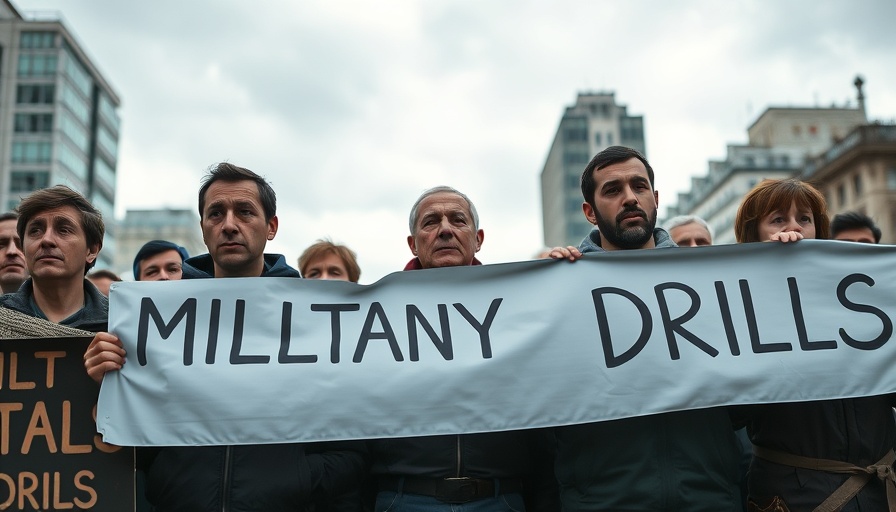
The Importance of the Ulchi Freedom Shield Exercises
Every summer, the South Korean and U.S. military forces engage in the Ulchi Freedom Shield (UFS) exercises, a vital event aimed at preparing for potential threats from North Korea. This year, the drills involve approximately 21,000 soldiers, with 18,000 hailing from South Korea. The exercises span 11 days and incorporate computer simulations alongside field training, underscoring the depth and seriousness of the preparations. Defensive in nature, these exercises are crucial for ensuring readiness in a region characterized by its unpredictable tensions.
Context of Rising Tensions
The backdrop of the UFS drills is marked by escalating tensions between North Korea and its neighbors. North Korea, under leadership aiming to solidify its nuclear capabilities, interprets these joint exercises as mistrust and potential aggression. The North has threatened to respond to any perceived provocations, adding an element of uncertainty to the geopolitical climate. This year’s drills are particularly significant due to South Korea's new President Lee Jae Myung positioning in upcoming negotiations with U.S. President Donald Trump, wherein defense costs and military presence are contentious topics. Thus, these exercises could serve as a double-edged sword—strengthening defense while simultaneously heightening tensions.
Local Reactions and Protests
Despite their intended purpose, the UFS exercises are not without controversy. On the ground in Seoul, there is public dissent against the joint drills, with protests advocating for a cessation of military exercises. Demonstrators argue that the exercises aggravate the tensions with North Korea rather than foster peace. This sentiment reflects a significant segment of South Korean society that desires diplomatic engagement over military confrontation, emphasizing the complexity of public opinion amid the national security dialogue.
The Role of Dialogue in Regional Stability
The ongoing UFS exercises highlight an essential aspect of international relations: the balance between military readiness and diplomatic dialogue. While the drills prepare troops for possible conflict scenarios, they also create opportunities for diplomatic initiatives. As both countries bolster security measures, fostering open channels of communication with North Korea remains critical. High-stakes summits, such as the upcoming meeting between Presidents Lee and Trump, could pave the way for discussions that address not just military readiness, but also methods to ease tensions.
International Perspectives on the Drills
The Ulchi Freedom Shield exercises resonate beyond the confines of the Korean Peninsula, impacting global geopolitics. Countries in the region and analysts worldwide closely monitor U.S. and South Korean military strategies while Kenneth E. Bae, an expert on North Korea, notes that each military exercise can be seen as a double-edged sword—preparing for conflict while provoking reactions that escalate military posturing. This element of unpredictability necessitates ongoing adjustments in foreign policy to ensure that nations maintain deterrence without triggering unintended escalations.
The Way Forward: Combining Strength and Diplomacy
As we reflect on the implications of the Ulchi Freedom Shield exercises, it is pivotal to recognize the importance of balancing military preparedness with strategic diplomatic initiatives. By ensuring military readiness and simultaneously advancing conversations with North Korea, the U.S. and South Korea can work towards a more stable regional environment. Encouraging engagement over confrontation may ultimately lead to a fortified peace that benefits all stakeholders in the region.
In summary, events like the Ulchi Freedom Shield serve as reminders of the indefinite challenges that accompany national security efforts. For Central Florida residents and the broader global community, staying informed on such issues is crucial as they signal not only regional dynamics but also influence global peace efforts. Ensuring a secure future in the region requires scrutiny and proactive measures from all those involved—military readiness combined with the courage to engage in dialogue.
 Add Row
Add Row  Add
Add 




Write A Comment